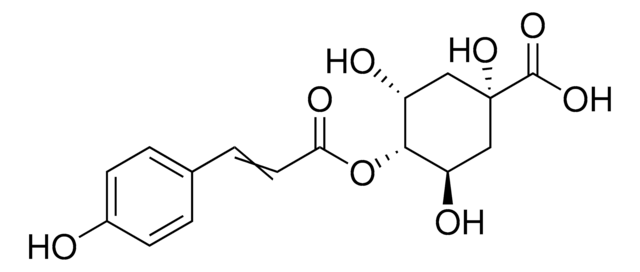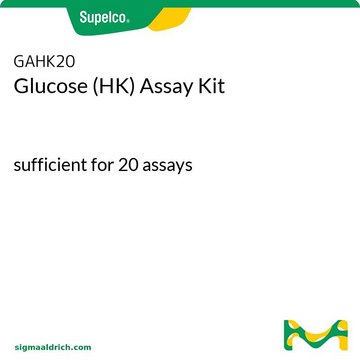MAK093
Phosphofructokinase (PFK) Activity Colorimetric Assay Kit
sufficient for 100 colorimetric tests
Synonyme(s) :
PFK Activity Assay Kit
About This Item
Produits recommandés
Utilisation
sufficient for 100 colorimetric tests
Méthode de détection
colorimetric
Maladie(s) pertinente(s)
cancer; orthopedic diseases; aging/geriatric diseases
Température de stockage
−20°C
Informations sur le gène
human ... PFKL(5211) , PFKM(5213) , PFKP(5214)
mouse ... PFKL(18641) , PFKM(18642) , PFKP(56421)
rat ... PFKL(25741) , PFKM(65152) , PFKP(60416)
Catégories apparentées
Description générale
Application
Adéquation
Principe
Mention d'avertissement
Danger
Mentions de danger
Conseils de prudence
Classification des risques
Resp. Sens. 1
Code de la classe de stockage
10 - Combustible liquids
Faites votre choix parmi les versions les plus récentes :
Certificats d'analyse (COA)
Vous ne trouvez pas la bonne version ?
Si vous avez besoin d'une version particulière, vous pouvez rechercher un certificat spécifique par le numéro de lot.
Déjà en possession de ce produit ?
Retrouvez la documentation relative aux produits que vous avez récemment achetés dans la Bibliothèque de documents.
Notre équipe de scientifiques dispose d'une expérience dans tous les secteurs de la recherche, notamment en sciences de la vie, science des matériaux, synthèse chimique, chromatographie, analyse et dans de nombreux autres domaines..
Contacter notre Service technique



